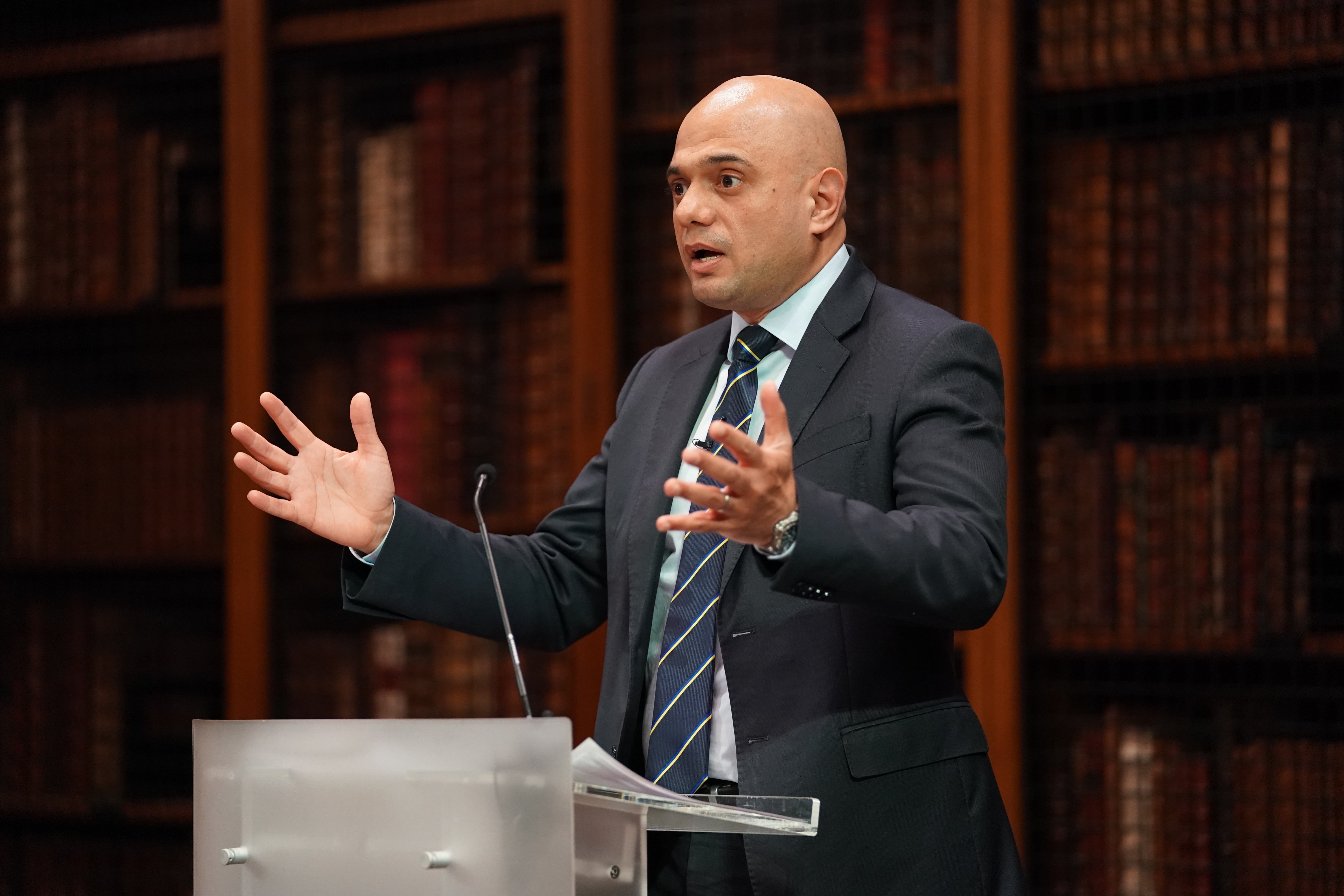Plans to tackle NHS workforce shortages to be published this year - but with no additional funding
Spending on healthcare has meant ‘trade offs’ for education and infrastructure, says Sajid Javid

Your support helps us to tell the story
From reproductive rights to climate change to Big Tech, The Independent is on the ground when the story is developing. Whether it's investigating the financials of Elon Musk's pro-Trump PAC or producing our latest documentary, 'The A Word', which shines a light on the American women fighting for reproductive rights, we know how important it is to parse out the facts from the messaging.
At such a critical moment in US history, we need reporters on the ground. Your donation allows us to keep sending journalists to speak to both sides of the story.
The Independent is trusted by Americans across the entire political spectrum. And unlike many other quality news outlets, we choose not to lock Americans out of our reporting and analysis with paywalls. We believe quality journalism should be available to everyone, paid for by those who can afford it.
Your support makes all the difference.Sajid Javid has announced a plan to tackle NHS workforce shortages will be published by the end of the year - but the health service will not receive any additional funding to back it, he said.
In a speech setting out widespread reforms, the health secretary on Tuesday said the NHS is the area where the government spends the most money, adding that spending increases have meant areas such as education have lost out.
Mr Javid said the UK has now come to a “crossroads” where it must choose between “endlessly putting in more and more money, or reforming how we do healthcare”.
He confirmed the government will publish a long-awaited plan for the NHS workforce by the end of the year, but in response to questions from The Independent over funding, he said it would not go above the £36 billion already promised. Mr Javid said costs for the new staffing plan would come from existing budgets.
Healthcare leaders have repeatedly called for a long-term “fully funded” plan to address staff shortages across the NHS, alongside a funding commitment for health education regulator Health Education England.
Mr Javid said: “I have led six government departments, including one where I was responsible for the nation’s finances and the high spending department. I’ve seen firsthand how when healthcare takes up an ever-greater share of national income, you have to make some serious trade-offs on everything from education to infrastructure.”
He said that if there was no reform then “taxes and waiting lists would rise”.
As part of the government’s latest plan to reform NHS services, the health secretary said patients who have been waiting the longest would travel to less busy hospitals or private facilities for care - with the NHS footing the bill for travel and accommodation.
He also urged people to harness the “power of families” to make a difference for their loved ones’ health, recalling when his father quit smoking at the request of his mother.
Under plans to expand the use of the NHS app, Mr Javid said he wants this to be the way in which patients access services rather than through their GP.
Much of the plans announced by the health secretary have previously been floated and medical leaders have criticised his speech for lacking in detail, particularly on workforce plans.
In a statement responding to the proposals, the British Medical Association said: “Fundamentally, the public will want to see the additional investment from the health and care levy being invested in frontline staff. Many will therefore be concerned to see that for the almost £36 billion promised over the next three years for health and social care spending, nothing has been mentioned in today’s plan about how to boost staffing.
“In addition, there remains a complete lack of clarity about what will happen for NHS funding after those three years. This is an ambitious plan from the government, but one that potentially verges on being impossible if the workforce continues to be ignored.”
Meanwhile, Mr Javid also addressed the Russian invasion in his speech, saying the government is looking at providing countries bordering Ukraine with medical support on the ground, adding: “Often that is what is going to make the biggest difference, rather than trying to fly someone thousands of miles.”
He continued: "But where there is a need for acute life-saving care, I don’t want to say too much at this point, but we are looking at options, working again with our European partners and our partners working with the Foreign Office on this and looking at what we can do.
"And we will absolutely be playing our part in that, especially when it comes to the children."
On Monday, the Department for Health and Social Care sent a letter to NHS leaders, seen by The Independent, asking them to “undertake an urgent review” of “supply chains and identify contractual relationships you have with Russian and Belarussian suppliers.”
Trusts were told to make plans to exit those contracts as soon as possible, within the terms of those contracts.
NHS England said in an email to leaders they should review procurement processes to ensure that “Russian and Belarussian suppliers are not considered for new or renewed contracts.”
When asked about the number of trusts who are exposed due to their use of Russian owned energy supplier Gazprom, the health secretary said he did not have an answer but some are directly impacted while others have “second-order exposure.”
He added: "It’s not possible for trusts to just turn off the gas that works, obviously for very important reasons, but all trusts have responded very well to that.
"They all absolutely get it and all the trusts are working towards doing that and we are providing the support for doing that."
Join our commenting forum
Join thought-provoking conversations, follow other Independent readers and see their replies
Comments